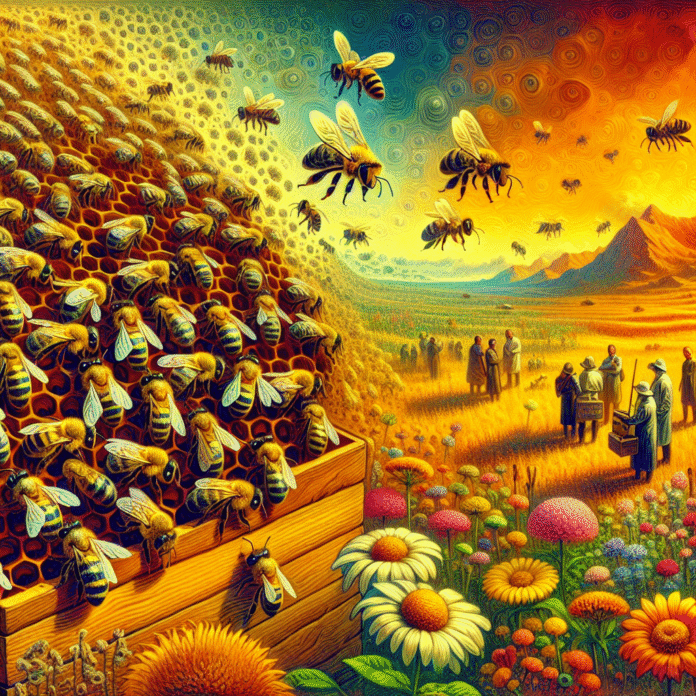Bees Adapt to Climate Change Challenges
Bees Have Adaptation Strategies for a Warming Earth, But Concerns About Their Future Persist
Bees, essential pollinators in our ecosystems and agricultural systems, have developed various strategies to cope with the challenges posed by a warming planet. As global temperatures continue to rise due to climate change, these remarkable insects are facing unprecedented pressures that threaten their survival.
Adaptation Mechanisms
Bees have demonstrated a remarkable ability to adapt to changing environmental conditions. Some species are migrating to cooler areas, seeking refuge from rising temperatures. Others are altering their foraging behavior, such as adjusting the timing of their activity to align with blooming schedules of flowers. Additionally, certain bee species are exhibiting genetic changes that may enhance their resilience to heat stress and changing climates.
However, these adaptation strategies are not foolproof and may not be sufficient to ensure their long-term survival. Researchers are increasingly concerned about the combined effects of climate change, habitat loss, pesticide exposure, and diseases on bee populations. The loss of diverse plant species due to climate change further exacerbates the challenges bees face in finding adequate food sources.
The Role of Habitat and Biodiversity
The health of bee populations is closely tied to the availability of diverse habitats. As climate change alters ecosystems, the plants that bees rely on for nectar and pollen may become scarce or shift to less accessible areas. Preserving and restoring habitats, such as wildflower meadows and native plant gardens, is crucial for supporting bee populations. Biodiversity plays a vital role in providing bees with a variety of food sources, which is essential for their nutrition and overall health.
Research and Conservation Efforts
Scientists are actively researching the effects of climate change on bee behavior, genetics, and ecology. Conservation efforts focused on protecting bee habitats and promoting sustainable agricultural practices are gaining momentum. Initiatives such as creating pollinator-friendly environments, reducing pesticide use, and planting native flora can significantly contribute to the well-being of bee populations.
Furthermore, raising public awareness about the importance of bees and their role in pollination can foster community involvement in conservation efforts. Educational programs and campaigns aimed at promoting bee-friendly practices are essential in encouraging individuals and organizations to take action.
Conclusion
While bees possess certain mechanisms to adapt to a warming Earth, their future remains uncertain. The interplay of climate change with other environmental stressors poses significant challenges. Continued research and proactive conservation measures are imperative to safeguard these vital pollinators and, by extension, the health of our ecosystems and food systems. Supporting local biodiversity and engaging in sustainable practices can help ensure that bees continue to thrive in an increasingly unpredictable climate.
